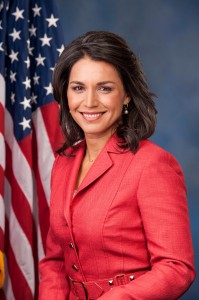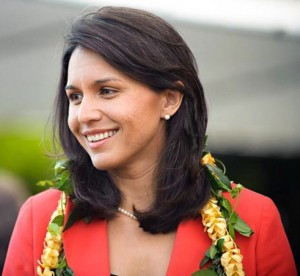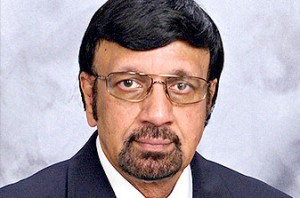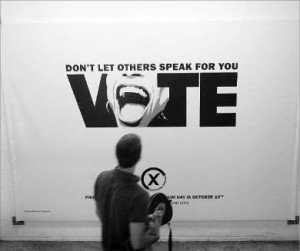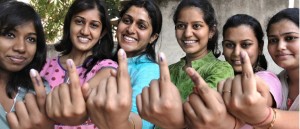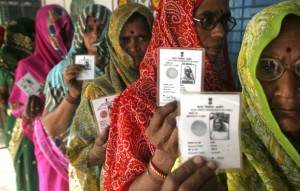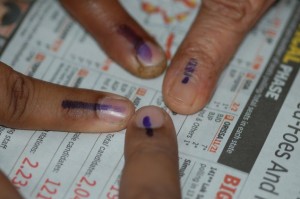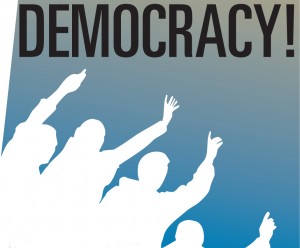In the next two months, almost 814 million voters will make their way to polling booths across the length and breadth of the country to cast their votes in the largest democratic elections in the world. The general elections, in which voters will elect a total of 543 members to the lower house of Parliament, or Lok Sabha, will ultimately decide the fate of the nation. The upcoming elections, described by local analysts as historic, pits the rightwing Bharatiya Janata Party (BJP) against the broadly centre-left Congress party, which has been in power for 10 years. The BJP’s prime ministerial candidate is Narendra Modi while the Congress campaign is led by Rahul Gandhi, the 43-year-old scion of India’s most famous political dynasty.
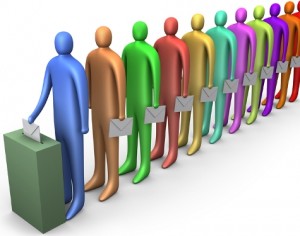 All the hype and buzz about the upcoming elections have whipped up enough interest all around the world and Indian Americans are equally keyed in to the updates. Only a few of them have a vote back home, but that does not stop them from being excited about the elections and hoping that the election brings forward a clean government and a corruption free India. Sensing their growing interest in the Indian elections, US India Political Action Committee (USINPAC) has come up with a unique initiative which is running a series of weekly conference calls with noted analysts from India providing their expert opinion to the American callers. The discussion points during the calls touch upon subjects such as possible outcomes of the elections, impact on trade and investments in sectors such as pharmaceuticals, energy, aviation, IT, status of civil liability bill and possible shift in India’s foreign policy. The calls which began on March 22nd will continue till May 16th and India’s leading political analysts and experts will be offering their expert opinions with respect to the Indian elections. In the last two weeks, the featured experts were Dr. Jagdeep S Chhokar, the founder member of Association for Democratic Reforms (ADR), a non-profit organization that’s working for government and electoral change in India, Dr. Anupam Srivastva, Managing Director, Invest India, Madhav Nalpat, Director of the Geopolitics and International Relations Department at Manipal University and Yashwant Deshmukh, prominent broadcast journalist and founder of C-voter.
All the hype and buzz about the upcoming elections have whipped up enough interest all around the world and Indian Americans are equally keyed in to the updates. Only a few of them have a vote back home, but that does not stop them from being excited about the elections and hoping that the election brings forward a clean government and a corruption free India. Sensing their growing interest in the Indian elections, US India Political Action Committee (USINPAC) has come up with a unique initiative which is running a series of weekly conference calls with noted analysts from India providing their expert opinion to the American callers. The discussion points during the calls touch upon subjects such as possible outcomes of the elections, impact on trade and investments in sectors such as pharmaceuticals, energy, aviation, IT, status of civil liability bill and possible shift in India’s foreign policy. The calls which began on March 22nd will continue till May 16th and India’s leading political analysts and experts will be offering their expert opinions with respect to the Indian elections. In the last two weeks, the featured experts were Dr. Jagdeep S Chhokar, the founder member of Association for Democratic Reforms (ADR), a non-profit organization that’s working for government and electoral change in India, Dr. Anupam Srivastva, Managing Director, Invest India, Madhav Nalpat, Director of the Geopolitics and International Relations Department at Manipal University and Yashwant Deshmukh, prominent broadcast journalist and founder of C-voter.
The various questions they were asked ranged from effectiveness of the next government to implement the bills to how will the government curb the rampant corruption and what is the 100 day plan? Predictions were also made that the Bhartiya Janata Party led alliance (National Democratic Alliance) will get a minimum of 230 seats in the Indian parliamentary elections, according to Mr. Yeshwant Deshmukh, of C-Voter, a leading polling agency. In such a situation, the NDA will be well placed to attract support from some of the regional parties – to easily cross the magical figure of 271 to form the next government in India.
Participants across 9 cities, which included leaders of the Indian American community, policy-makers at Capitol Hill, investment bankers and investors from the Wall Street along with technology entrepreneurs and academicians connected through the call.
With the first two calls turning out to be such a raging success, the rest of the calls are set to witness an even better response. As Sanjay Puri, Chairman, USINPAC says, “There is significant interest in the U.S. about the upcoming elections in India. Policy makers, businesses, and investors want to evaluate the developments. Major policy and business decisions would depend on the outcome of these elections. Through this initiative we aim to provide a better understanding of India to our U.S. members so that bilateral relations which are seeing a rocky present have a cooperative future.”
This week the panel of experts will comprise of Prof. Chintamani Mohapatra and Rajiv Kumar. To register for the call, click here.

